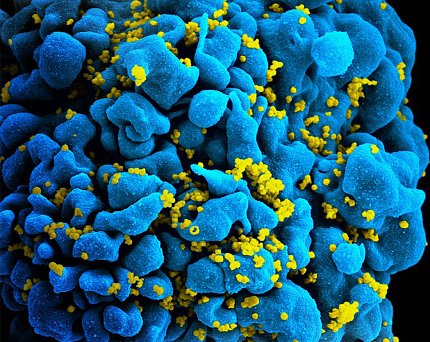HIV Vaccine Candidate Doesn’t Sufficiently Protect Women

Photo: NIAID
An investigational HIV vaccine tested in sub-Saharan Africa posed no safety concerns but did not sufficiently protect against HIV infection, according to a primary analysis of data from the Imbokodo clinical trial. The Phase 2b proof-of-concept study, which began in November 2017, enrolled 2,637 women ages 18 to 35 from 5 countries.
The Imbokodo primary analysis was conducted 2 years after participants received their first vaccinations. The study’s primary endpoint was based on the difference in the number of new HIV infections between the placebo and vaccine groups from month 7 (1 month after the third vaccination timepoint) through month 24.
When comparing the number of new HIV infections between study participants, statisticians found that 63 participants who received the placebo and 51 participants who received the experimental vaccine acquired HIV infection. Therefore, the investigational vaccine’s efficacy was 25.2 percent. The women who acquired HIV infection were directed to medical care and offered antiretroviral treatment.
The investigational vaccine is based on “mosaic” immunogens—vaccine components designed to induce immune responses against a wide variety of global HIV strains. The vaccine candidate used a strain of common-cold virus (adenovirus serotype 26, or Ad26), engineered to not cause illness, to deliver four mosaic antigens to spur an immune response. Earlier research indicated the vaccine could induce an anti-HIV immune response. Imbokodo participants received 4 vaccinations during a 1-year period. The primary analysis occurred 1 year after the last study participant’s final vaccination.
Further analysis will continue. A different investigational HIV vaccine is in testing among a different patient population than this study (men who have sex with men and transgender populations in the Americas and Europe). That trial, a phase 3 study called Mosaico, is estimated to be completed in March 2024.
